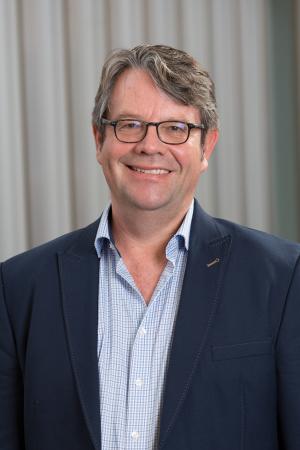Renowned biomedical researcher Dr. Michael Kobor has been appointed to lead the Edwin S.H. Leong Healthy Aging Program – a new University of British Columbia (UBC) research program aimed at helping people live longer, healthier lives.
As the inaugural Edwin S.H. Leong UBC Chair in Healthy Aging – a UBC President’s Excellence Chair, Dr. Kobor will build a permanent program focused on deepening understanding of the aging process and developing innovative, practical strategies to improve how people age. The program, housed within UBC’s faculty of medicine, is supported by a visionary and transformational gift of $24-million from Hong Kong businessman, philanthropist and UBC alumnus Edwin Leong.

“I’m tremendously honoured to be the inaugural holder of this chair and grateful to Edwin Leong for his generosity that made this possible,” says Dr. Kobor. “Through this program, I will work to advance Dr. Leong’s vision to improve the quality of life of people as they age and to ensure people around the world can thrive and make the most of their later years.”
Dr. Kobor, a world-leading expert in the field of epigenetics who is an investigator at BC Children’s Hospital Research Institute (BCCHR) and the Centre for Molecular Medicine and Therapeutics (CMMT) and the Sunny Hill BC leadership chair in child development, says his explorations of the impacts of social and environmental factors on DNA in childhood will enrich his work in healthy aging.
“My experience with child health and development has played a big role in conceptualizing my views on healthy aging,” he says.
“Through our lab’s work on the early life social and environmental factors that get ‘under the skin’ to shape life-long health, I have gained an appreciation that in order to promote healthy aging we need to promote health and well-being across the life course, not just in our older years.”
Populations across Canada and around the world are aging, resulting in increased numbers and proportions of people who are over the age of 60. The Edwin S.H. Leong Healthy Aging Program will address the challenges associated with this demographic transition by defining new pathways through which individuals, communities, health-care systems and whole societies can deliver a future with healthy aging for all.
Dr. Kobor’s research examines how social and environmental factors become biologically embedded in our genes, influencing health and well-being throughout a person’s life and into older age. He will bring this “society to cell” approach to the new program to further investigate the societal and molecular underpinnings of aging and age-related diseases.
In his role, Dr. Kobor, who is also a professor in UBC’s department of medical genetics and a Canada Research Chair, will foster an interdisciplinary research program that brings together UBC experts from different fields, while recruiting additional faculty, trainees and research personnel and promoting new partnerships globally. Rooted in a life-course approach, the program will look across the entire lifespan seeking the greatest opportunities to optimize longevity and quality of life.
“Over the years that I have been at BCCHR and CMMT, I have built many collaborations that have broadened the scope of my team’s research,” says Dr. Kobor.
“I am excited to build on these connections through the new Healthy Aging Research Program by forming new collaborations at UBC and abroad that I believe will be of tremendous benefit to our local community and UBC more broadly.”
Dr. Kobor has made many notable contributions to the field of healthy aging, including a landmark review paper in 2015 showing how aging and health are influenced by molecular tags on our DNA that accumulate over time and with environmental exposures – a process known as DNA methylation.
“Dr. Kobor’s work continues to provide transformative insights into the social determinants of healthy aging and how environmental factors influence genes and disease progression,” says UBC President Santa J. Ono.
“He brings a tremendous depth of experience and natural talent for collaboration to this new President’s Excellence Chair. This will enable him to unite UBC’s expertise across disciplines and engage leading experts internationally to foster a world-leading program to help people age in good health.”
Looking broadly across the lifespan, Dr. Kobor’s research has shown how early life experiences – such as childhood poverty and parental care – can impact health and disease into adulthood. He pioneered the creation of a new molecular “epigenetic clock” that looks at chemical tags on DNA associated with aging and environmental exposures. His team is currently investigating how this clock might be used for measuring and monitoring biological age across the life course.
Dr. Kobor has been heavily involved in the Canadian Longitudinal Study on Aging, integrating epigenetic principles and analysis into the long-term national study that is following 50,000 Canadians as they age. He is also currently investigating the underpinnings of healthy aging in several of the world’s “blue zones” – areas where residents live longer than average and do so in extremely good health and vigour.
By revealing the connections between our environment, gene expression and health outcomes, Dr. Kobor’s work is supporting the development of interventions to address health inequities and promote healthy development and aging.
“Aging is one of life’s great inevitabilities, but it can be a healthy, productive and joyful part of a long and fulfilling life,” says Dr. Dermot Kelleher, dean of UBC’s faculty of medicine, and vice-president, health, at UBC.
To reimagine our understanding of aging as a lifelong process, Dr. Kobor and his team will look backward and forward on the journey of aging to identify the greatest opportunities to intervene.
The innovative strategies they develop to slow the aging process and to prevent and treat diseases of aging will enable people to age in good health, in their communities, enjoying everything life has to offer.”




